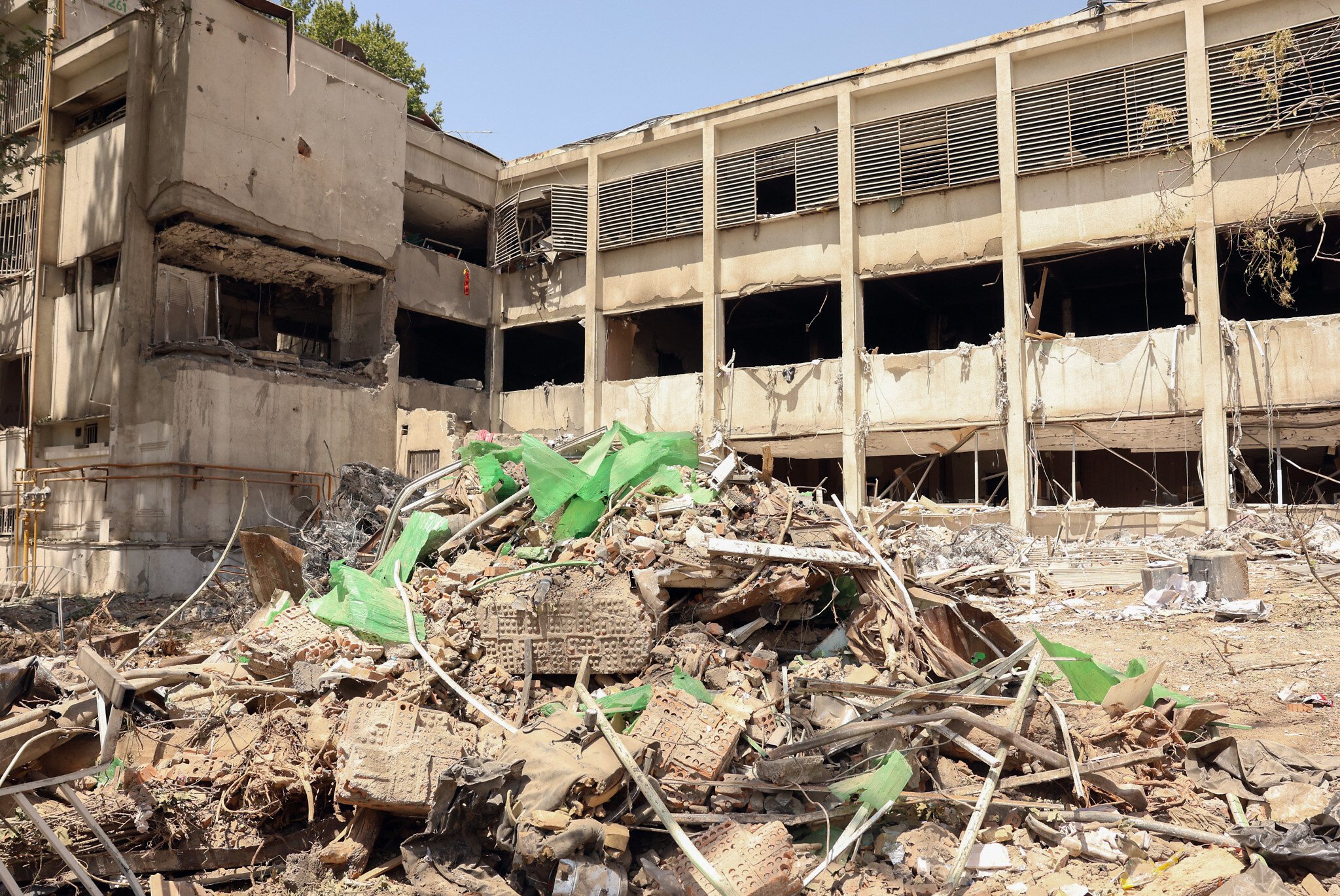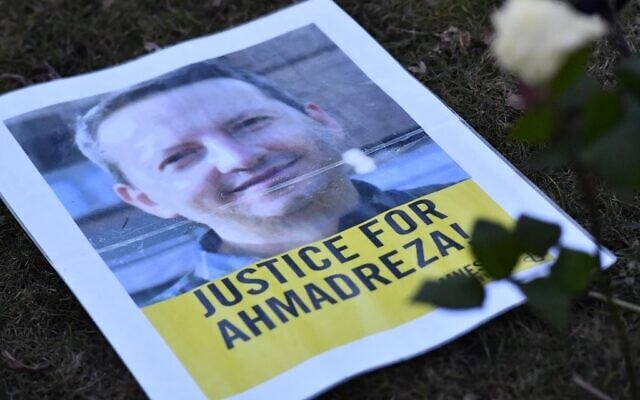



Human Rights Watch alleged Thursday that an Israeli airstrike on a notorious Iranian prison was “an apparent war crime,” while also accusing Tehran of harming and disappearing prisoners after the attack.
Israel struck Evin Prison in Tehran, one of Iran’s most notorious detention facilities for political activists and dissidents, on June 23, during its 12-day war with the Islamic Republic.
The strikes during visiting hours hit Evin Prison’s main southern entrance, another northern entrance, and other areas of the complex, destroying buildings that had medical facilities and prison wards.
The Iranian authorities initially said at least 71 people were killed during the airstrike, among them civilians, including inmates, visiting relatives, and prison staff. Iranian media later raised that number to 80.
It was unclear why Israel targeted the prison, but it came amid a wave of strikes on the penultimate day of the war that hit key assets and symbols of the Iranian regime in Tehran, including facilities belonging to the Islamic Revolutionary Guard Corps, and the “Destruction of Israel” countdown clock.
Human Rights Watch said the attack was “unlawfully indiscriminate” and that there was no evidence of an advance warning or a military target before striking the prison complex, which it estimates holds over 1,500 prisoners.
“To make matters worse, Israeli forces put at grave risk prisoners who were already victims of Iranian authorities’ brutal repression,” said Michael Page, the rights group’s deputy Middle East director.
Human Rights Watch said prisoners were subject to “ill-treatment and violence” both as they were being taken out of the prison following the attack and as they were returned.
Calls to Iranian authorities were not immediately returned on Thursday, a public holiday in the country. The Israeli military also did not respond to an immediate request for comment on the Human Rights Watch reports.
After the attack, Iranian authorities evacuated and transferred the prisoners to two other facilities in Tehran province and said on August 8 that they were gradually returned. Iranian state media said the prisoners were transferred peacefully and without any conflict.
But relatives and Human Rights Watch said some political prisoners were beaten with batons and “electric shock weapons” for resisting wearing handcuffs and protesting prison guards separating death-row inmates.
The group said some of the prisoners have disappeared, including Swedish-Iranian doctor Ahmadreza Djalali, who is at risk of execution. The rights group says Iran had refused to give it any information about his whereabouts.
“Iranian authorities should not use Israel’s strikes on Evin prison as another opportunity to subject prisoners, including those who should never have been in prison in the first place, to ill-treatment,” said Page.
The strike on Evin was part of a sweeping assault Israel launched on Iran’s top military leaders, nuclear scientists, uranium enrichment sites, and ballistic missile program on June 13 with the stated aim of stopping the Islamic Republic from realizing its avowed plan to destroy the Jewish state.
Iran has consistently denied seeking to acquire nuclear weapons. However, it enriched uranium to levels that have no peaceful application, obstructed international inspectors from checking its nuclear facilities, and expanded its ballistic missile capabilities. Israel said Iran had recently taken steps toward weaponization.
Iran retaliated to Israel’s strikes by launching over 500 ballistic missiles and around 1,100 drones at Israel. The attacks killed 31 people and wounded over 3,000 in Israel, according to health officials and hospitals.
In all, there were 36 missile impacts and one drone strike in populated areas, causing damage to 2,305 homes in 240 buildings, along with two universities and a hospital, and leaving over 13,000 Israelis displaced.

